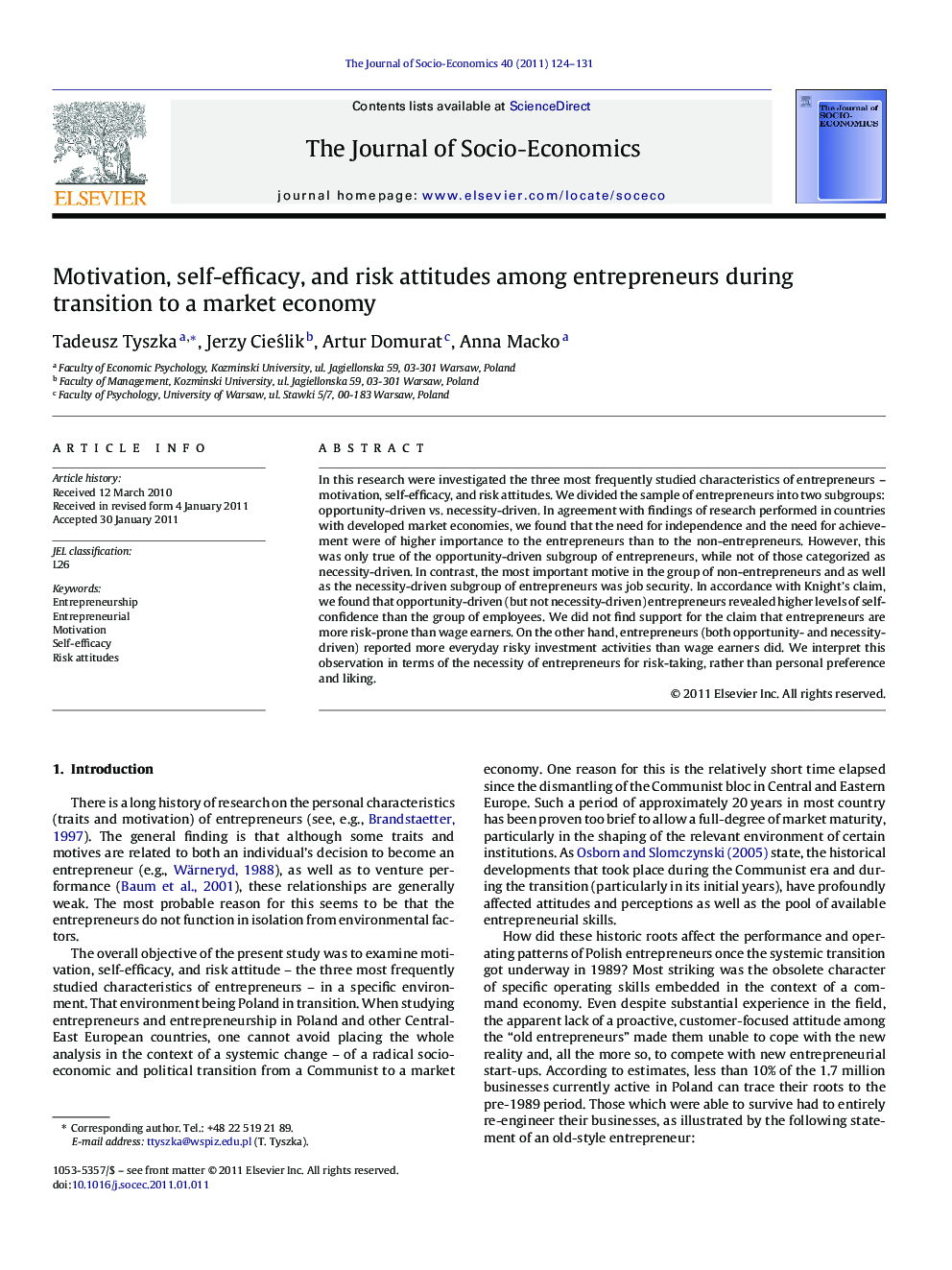| Article ID | Journal | Published Year | Pages | File Type |
|---|---|---|---|---|
| 970814 | The Journal of Socio-Economics | 2011 | 8 Pages |
In this research were investigated the three most frequently studied characteristics of entrepreneurs – motivation, self-efficacy, and risk attitudes. We divided the sample of entrepreneurs into two subgroups: opportunity-driven vs. necessity-driven. In agreement with findings of research performed in countries with developed market economies, we found that the need for independence and the need for achievement were of higher importance to the entrepreneurs than to the non-entrepreneurs. However, this was only true of the opportunity-driven subgroup of entrepreneurs, while not of those categorized as necessity-driven. In contrast, the most important motive in the group of non-entrepreneurs and as well as the necessity-driven subgroup of entrepreneurs was job security. In accordance with Knight's claim, we found that opportunity-driven (but not necessity-driven) entrepreneurs revealed higher levels of self-confidence than the group of employees. We did not find support for the claim that entrepreneurs are more risk-prone than wage earners. On the other hand, entrepreneurs (both opportunity- and necessity-driven) reported more everyday risky investment activities than wage earners did. We interpret this observation in terms of the necessity of entrepreneurs for risk-taking, rather than personal preference and liking.
► One should distinguish opportunity-driven vs. necessity-driven entrepreneurs. ► Only opportunity-driven entrepreneurs reveal high need for independence. ► Similarly, opportunity-driven entrepreneurs reveal high levels of self-confidence. ► Both groups of entrepreneurs report high level of everyday risky activities. ► However, entrepreneurs are not more risk-prone than wage earners.
